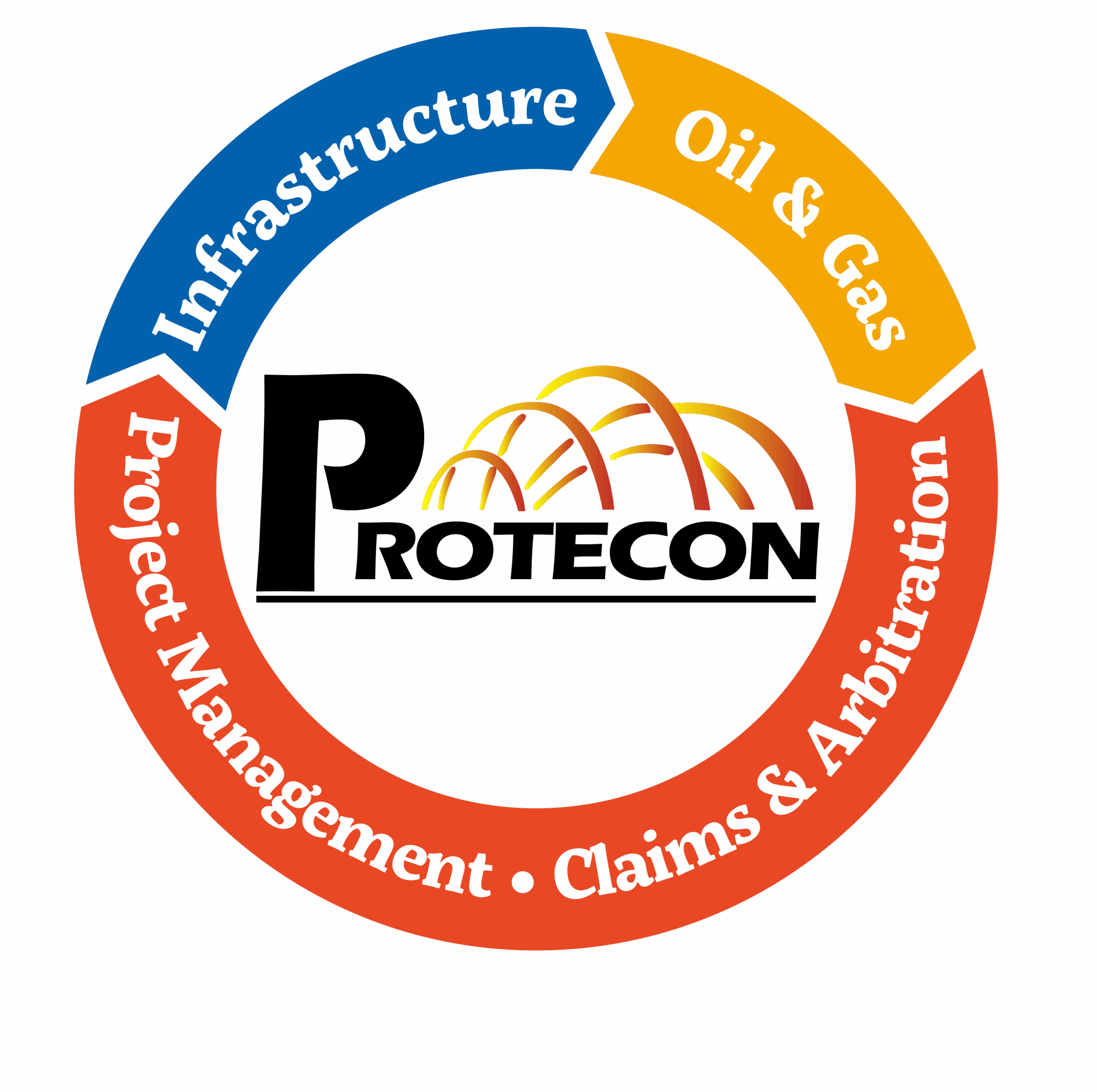➤ Protecon has been awarded an order to provide Project Planning Services to Veolia Canada, a global leader in water technologies and sustainable solutions. With this milestone, Protecon proudly marks its entry into the American continent, expanding our global footprint while continuing to deliver excellence in performance and sustainability.
➤ We have been providing PMO Services for more than 6 years now to M/s National High Speed Rail Corporation Limited (NHSRCL) on India’s 1st Bullet Train Project between Mumbai and Ahmedabad (MAHSR).
➤ The BTG Program – 22nd Batch with 30 trainees was successfully completed on 2nd June 2025. We’re proud to share that all trainees have been placed in top MNCs.
➤ We celebrated our 13th Foundation Day on 25th Sep 2025 at Hotel Clarks Shiraz, Agra.
➤ On 09th February 2024, M/s Dedicated Freight Corridor Corporation of India Limited (DFCCIL) awarded us the Techno-Legal Claims & Arbitration Support Services, including Expert Testimony for Delay and Quantum Analysis, for the CP-301 (EDFC) package.
➤ On 21st February 2024, M/s Dedicated Freight Corridor Corporation of India Limited (DFCCIL) awarded us the Technical Claims & Arbitration Support Services, including Expert Testimony for Delay and Quantum Analysis, for the CTP-14 (WDFC) package.
➤ On 15th July 2024, M/s Dedicated Freight Corridor Corporation of India Limited (DFCCIL) awarded us Techno-Legal Claims & Arbitration Support Services, including Expert Testimony for Delay and Quantum Analysis, for the CP-304 (EDFC) package.
➤ On 21st November 2024, M/s Tebodin Middle East awarded Protecon Consultancy FZC the Cost Estimation Services for 3 Nos. EPC Packages of ADNOC Projects.
➤ Our BTG Program – 21st Batch training was successfully completed on 15th November 2024. We’re proud to share that all our trainees have been placed in top MNCs.
➤ On 06th November 2023, M/s Dar Al Handasah awarded Protecon Consulting FZC-UAE the Oil and Gas Sub-consultancy Services for the Conceptual Study of 4x1.2 million barrels Underground Crude Oil Terminal for M/s ADNOC.
➤ Protecon has been awarded an order to provide Project Planning Services to Veolia Canada, a global leader in water technologies and sustainable solutions. With this milestone, Protecon proudly marks its entry into the American continent, expanding our global footprint while continuing to deliver excellence in performance and sustainability.
➤ We have been providing PMO Services for more than 6 years now to M/s National High Speed Rail Corporation Limited (NHSRCL) on India’s 1st Bullet Train Project between Mumbai and Ahmedabad (MAHSR).
➤ The BTG Program – 22nd Batch with 30 trainees was successfully completed on 2nd June 2025. We’re proud to share that all trainees have been placed in top MNCs.
➤ We celebrated our 13th Foundation Day on 25th Sep 2025 at Hotel Clarks Shiraz, Agra.
➤ On 09th February 2024, M/s Dedicated Freight Corridor Corporation of India Limited (DFCCIL) awarded us the Techno-Legal Claims & Arbitration Support Services, including Expert Testimony for Delay and Quantum Analysis, for the CP-301 (EDFC) package.
➤ On 21st February 2024, M/s Dedicated Freight Corridor Corporation of India Limited (DFCCIL) awarded us the Technical Claims & Arbitration Support Services, including Expert Testimony for Delay and Quantum Analysis, for the CTP-14 (WDFC) package.
➤ On 15th July 2024, M/s Dedicated Freight Corridor Corporation of India Limited (DFCCIL) awarded us Techno-Legal Claims & Arbitration Support Services, including Expert Testimony for Delay and Quantum Analysis, for the CP-304 (EDFC) package.
➤ On 21st November 2024, M/s Tebodin Middle East awarded Protecon Consultancy FZC the Cost Estimation Services for 3 Nos. EPC Packages of ADNOC Projects.
➤ Our BTG Program – 21st Batch training was successfully completed on 15th November 2024. We’re proud to share that all our trainees have been placed in top MNCs.
➤ On 06th November 2023, M/s Dar Al Handasah awarded Protecon Consulting FZC-UAE the Oil and Gas Sub-consultancy Services for the Conceptual Study of 4x1.2 million barrels Underground Crude Oil Terminal for M/s ADNOC.
➤ Protecon has been awarded an order to provide Project Planning Services to Veolia Canada, a global leader in water technologies and sustainable solutions. With this milestone, Protecon proudly marks its entry into the American continent, expanding our global footprint while continuing to deliver excellence in performance and sustainability.
➤ We have been providing PMO Services for more than 6 years now to M/s National High Speed Rail Corporation Limited (NHSRCL) on India’s 1st Bullet Train Project between Mumbai and Ahmedabad (MAHSR).
➤ The BTG Program – 22nd Batch with 30 trainees was successfully completed on 2nd June 2025. We’re proud to share that all trainees have been placed in top MNCs.
➤ We celebrated our 13th Foundation Day on 25th Sep 2025 at Hotel Clarks Shiraz, Agra.
➤ On 09th February 2024, M/s Dedicated Freight Corridor Corporation of India Limited (DFCCIL) awarded us the Techno-Legal Claims & Arbitration Support Services, including Expert Testimony for Delay and Quantum Analysis, for the CP-301 (EDFC) package.
➤ On 21st February 2024, M/s Dedicated Freight Corridor Corporation of India Limited (DFCCIL) awarded us the Technical Claims & Arbitration Support Services, including Expert Testimony for Delay and Quantum Analysis, for the CTP-14 (WDFC) package.
➤ On 15th July 2024, M/s Dedicated Freight Corridor Corporation of India Limited (DFCCIL) awarded us Techno-Legal Claims & Arbitration Support Services, including Expert Testimony for Delay and Quantum Analysis, for the CP-304 (EDFC) package.
➤ On 21st November 2024, M/s Tebodin Middle East awarded Protecon Consultancy FZC the Cost Estimation Services for 3 Nos. EPC Packages of ADNOC Projects.
➤ Our BTG Program – 21st Batch training was successfully completed on 15th November 2024. We’re proud to share that all our trainees have been placed in top MNCs.
➤ On 06th November 2023, M/s Dar Al Handasah awarded Protecon Consulting FZC-UAE the Oil and Gas Sub-consultancy Services for the Conceptual Study of 4x1.2 million barrels Underground Crude Oil Terminal for M/s ADNOC.
➤ Protecon has been awarded an order to provide Project Planning Services to Veolia Canada, a global leader in water technologies and sustainable solutions. With this milestone, Protecon proudly marks its entry into the American continent, expanding our global footprint while continuing to deliver excellence in performance and sustainability.
➤ We have been providing PMO Services for more than 6 years now to M/s National High Speed Rail Corporation Limited (NHSRCL) on India’s 1st Bullet Train Project between Mumbai and Ahmedabad (MAHSR).
➤ The BTG Program – 22nd Batch with 30 trainees was successfully completed on 2nd June 2025. We’re proud to share that all trainees have been placed in top MNCs.
➤ We celebrated our 13th Foundation Day on 25th Sep 2025 at Hotel Clarks Shiraz, Agra.
➤ On 09th February 2024, M/s Dedicated Freight Corridor Corporation of India Limited (DFCCIL) awarded us the Techno-Legal Claims & Arbitration Support Services, including Expert Testimony for Delay and Quantum Analysis, for the CP-301 (EDFC) package.
➤ On 21st February 2024, M/s Dedicated Freight Corridor Corporation of India Limited (DFCCIL) awarded us the Technical Claims & Arbitration Support Services, including Expert Testimony for Delay and Quantum Analysis, for the CTP-14 (WDFC) package.
➤ On 15th July 2024, M/s Dedicated Freight Corridor Corporation of India Limited (DFCCIL) awarded us Techno-Legal Claims & Arbitration Support Services, including Expert Testimony for Delay and Quantum Analysis, for the CP-304 (EDFC) package.
➤ On 21st November 2024, M/s Tebodin Middle East awarded Protecon Consultancy FZC the Cost Estimation Services for 3 Nos. EPC Packages of ADNOC Projects.
➤ Our BTG Program – 21st Batch training was successfully completed on 15th November 2024. We’re proud to share that all our trainees have been placed in top MNCs.
➤ On 06th November 2023, M/s Dar Al Handasah awarded Protecon Consulting FZC-UAE the Oil and Gas Sub-consultancy Services for the Conceptual Study of 4x1.2 million barrels Underground Crude Oil Terminal for M/s ADNOC.

Let's Bridge the Gap Together
We will answer any questions you may have about our services.
Get in Touch!
We’re here to help you with your queries. Fill out the form below and our team will get back to you shortly.
